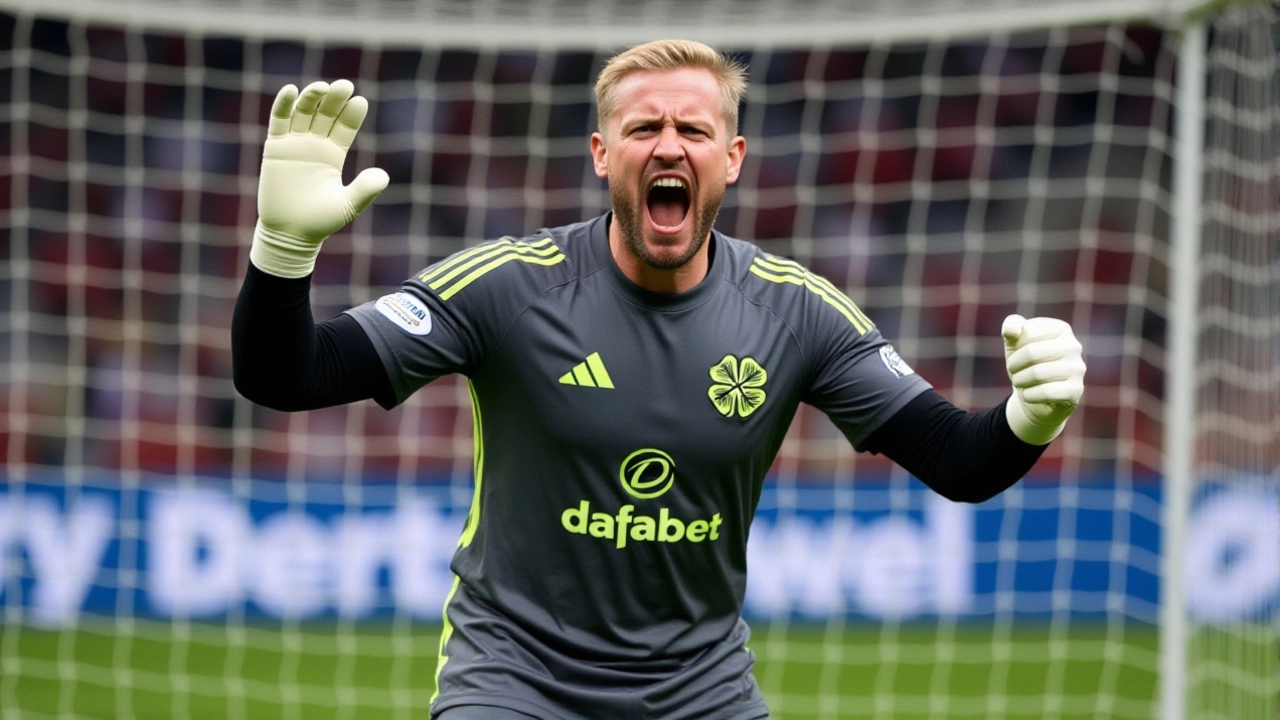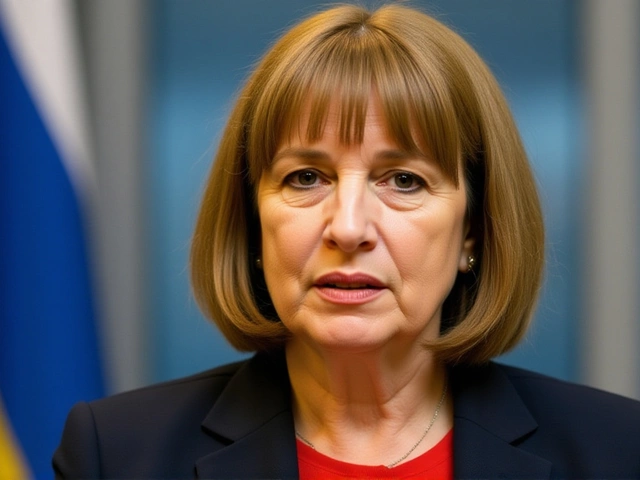When Celtic FC thrashed Ross County 3-0 at the Global Energy Stadium in Dingwall on November 21, 2025, it wasn’t just the goals that made headlines—it was the phrase that followed. BBC Match of the Day pundit Chris Sutton, a former Premier League striker now known for his blunt commentary, posted on social media: “Another big 3 points from mentality monsters Celtic. No moaning about injuries...” The line stuck. And it ignited a firestorm across Scottish football.
The Rise of a Label
The term “mentality monsters” isn’t new. It was coined during Manchester United’s dominant era under Sir Alex Ferguson (1986–2013), when the Red Devils won titles by sheer will, not just skill. Now, fans and pundits are applying it to Celtic FC—a club that, despite often being outplayed statistically, keeps winning. Their record this season: 17 wins, 2 draws, 1 loss. But it’s not the results alone that define them. It’s how they win.
Take the 13-4 foul disparity against Kilmarnock FC at Rugby Park. Celtic players were whistled for 13 fouls; Kilmarnock, just four. Celtic supporters argue it’s not that they play dirty—it’s that opponents “breathe on an opponent and it’s an instant whistle.” The narrative? They’re relentless. They don’t back down. They don’t whine. And that, to many, is mental toughness.
Rangers’ Backlash and the SFA Rejection
But not everyone sees it that way. Enter Rangers FC, Celtic’s fierce Glasgow rivals. After the Austin Trusty incident—a controversial tackle during a match that led to a red card and widespread outcry—Rangers demanded a second meeting with the Scottish Football Association (SFA), headquartered at Hampden Park in Glasgow. They wanted clarity. They wanted accountability.
The SFA didn’t just decline. They dismissed it outright. “Almost immediately,” according to The Celtic Blog, the association called Rangers’ bluff. That response didn’t calm tensions—it fueled them. Rangers fans now accuse Celtic of benefiting from biased officiating. Celtic fans retort that Rangers only complain when things don’t go their way. “It’s blatantly clear to everyone except the hateful racist scum of the west that Celtic get constantly screwed,” read one viral post on a supporter forum.
The irony? Celtic’s own manager, Brendan Rodgers, has previously called players like Kieran Tierney—who left for Arsenal in 2019—“monsters” for their mental strength. Now, he’s being asked to build another squad of them.
Transfer Targets and the Monster Mentality
The “mentality monster” label isn’t just for players on the pitch—it’s now guiding recruitment. Football Fan Cast suggests Celtic FC could sign Richard Kone, a 22-year-old forward from Wycombe Wanderers FC, for £3 million. Why? Because he’s physical, relentless, and doesn’t flinch under pressure—exactly the profile of Matt O’Riley, the 23-year-old midfielder who joined from Brighton & Hove Albion FC in January 2024 and became a midfield engine overnight.
And then there’s the £7 million+ target: a potential replacement for former striker Moussa Dembélé, who scored 54 goals in 70 appearances between 2016 and 2018. The club needs goals, especially against ten-man sides. Critics say Celtic have been “too polite” when opponents are down to ten. But supporters argue: “We don’t need to score seven. We just need to win. And we do.”

A Legacy Reborn?
Historically, “mentality monsters” weren’t just about winning—they were about dominating, intimidating, and refusing to lose. Manchester United under Ferguson did it for nearly three decades. Now, some wonder: Is Celtic becoming that club again?
It’s a risky comparison. Ferguson’s United had a ruthless edge. Celtic, under Rodgers, still play with flair, creativity, and a certain joy. But the results? They’re the same. And in the Scottish Premiership, where the gap between Celtic and Rangers has narrowed to single digits in points, that matters more than style.
As the 2025–2026 season heads into its final stretch, the debate won’t fade. Is Celtic’s success built on mental resilience—or referee bias? Are they monsters, or just lucky? The answer might be both.
What’s Next?
Two more clashes between Celtic and Rangers loom in March and April 2026. Each will be a referendum on the “mentality monster” label. If Celtic win decisively without complaint, the narrative hardens. If Rangers finally break through with a controversial result, the backlash could turn violent.
Meanwhile, the SFA faces mounting pressure to standardize refereeing standards. A leaked internal memo from November 2025 suggests a review panel is being formed—though no timeline has been announced. And Celtic’s transfer window? It’s already active. Kone isn’t the only name on the list. Two more players, one from Ligue 1 and another from the Championship, are being monitored with the same “mentality” checklist.
Frequently Asked Questions
Why is the term 'mentality monsters' being used for Celtic FC now?
The label emerged after Celtic’s 3-0 win over Ross County on November 21, 2025, when pundit Chris Sutton used it to contrast Celtic’s no-complaint attitude with Rangers’ frequent appeals over refereeing. It reflects Celtic’s ability to win tight games despite often being outplayed statistically, especially with 13 fouls called against them versus Kilmarnock’s 4 in one match.
How does this compare to Manchester United under Sir Alex Ferguson?
Ferguson’s United were defined by psychological dominance—winning even when outplayed, intimidating opponents, and never accepting defeat. Celtic’s current squad mirrors that in results, not style. They don’t always dominate possession, but they win when it matters. The difference? Ferguson’s teams had global star power; Celtic’s rely on grit, youth development, and tactical discipline.
What impact does the SFA’s rejection of Rangers’ meeting request have on the rivalry?
It deepens the divide. Rangers see it as institutional bias; Celtic fans see it as validation. With no independent review body in Scottish football, the lack of transparency fuels conspiracy theories. The SFA’s quick dismissal has already been cited by Celtic media as proof that Rangers are “playing the victim”—a narrative that could backfire if future matches are perceived as unfairly decided.
Are Celtic’s transfer targets truly 'mentality monsters'?
Yes, by Celtic’s current criteria. Players like Richard Kone and Matt O’Riley are chosen for mental resilience, not just talent. O’Riley, for example, thrived under pressure in the Championship before becoming a Celtic starter. The club’s recruitment now prioritizes players who don’t flinch under referee scrutiny, crowd pressure, or media criticism—traits that define the “monster” label.
Why do Celtic fans believe they’re constantly victimized by referees?
Celtic have faced 13 fouls called against them in matches where opponents received four or fewer, including the Kilmarnock game. Supporters point to video evidence showing minimal contact being punished, while similar actions against Rangers go uncalled. Though no official data confirms systemic bias, the pattern is consistent enough to fuel belief—especially after high-profile incidents like the Austin Trusty red card.
What’s at stake for Celtic in the 2025–2026 season?
Winning the Premiership isn’t just about trophies—it’s about legacy. A 12th consecutive title would tie Celtic with their own record set between 2011–2020. More importantly, it would cement their identity as the modern-day “mentality monsters” of Scottish football. Lose, and the narrative shifts entirely: are they lucky, or just not good enough?





